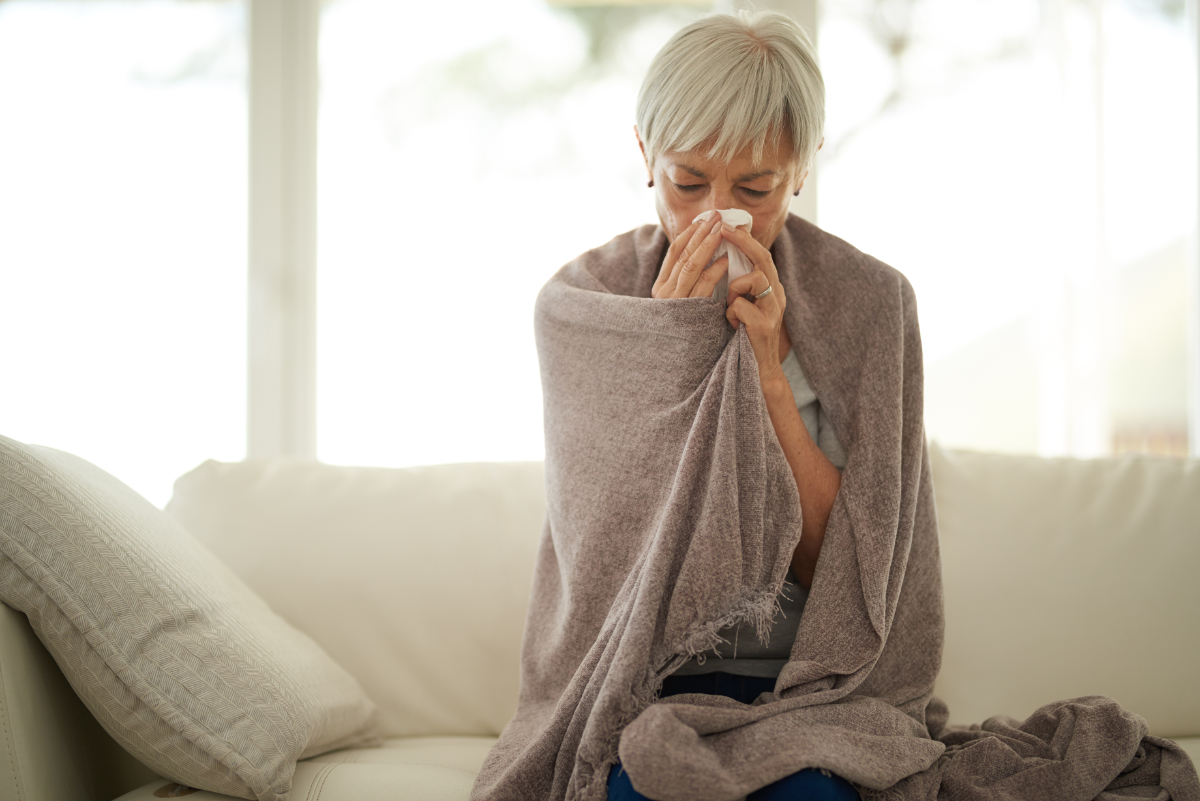Ah, that old enemy the common cold. The beastly runny nose, sore throat that threatens to run riot with your taste buds and annoying tickly cough that creeps up on you at any given moment, and leaves you gasping for water. Don’t let winter win – here’s how to stop a cold developing so you can breeze through the winter season and (hopefully) remain snuffle-free.
How to stop a cold developing
Lots of water, which is a good thing – and one of the first steps to healing yourself better. Ahead of the ‘sickie season,’ here are the key steps to wellness to suppress that first sneeze…
Winter can keep you awake at night, too. Take on winter tiredness with our top tips for beating winter sluggishness.
1. Drink enough
The NHS advise anyone feeling a cold coming on to drink plenty of water (eight glasses a day or so your pee is a pale or clear) and fresh fruit juice or squash with water is OK too.
So that’s hydration as a key step in stopping a cold sorted.
2. Get enough rest and sleep
Know when to say ‘no’ as a tactic for how to stop a cold developing. We all love a good night out but if you’re feeling run down, stressed or tired, make the most of an early night. Most people need seven to nine hours and lack of sleep can make us more prone to infection, so chill out and check out what’s new on Netflix.
Having trouble sleeping? Suffering from insomnia? Read our advice for overcoming insomnia and getting a good night’s sleep.
3. Wrap up warm to help stop a cold developing
Turns out things your nan loves to say such as, ‘Stay cosy and wrap up warm luv’, is sound advice – so don’t shun bed socks and a beanie. Catching a chill can be the catalyst to a cold, so stay wrapped up so you don’t lose heat from your head, hands and body.

4. Get enough vitamins, herbs and nutrients to help stop a cold
Up your vitamin C, D3, echinacea and zinc to lower the risk of infection and help boost your immune system. Studies have shown garlic is a natural remedy for fighting colds and other powerful antioxidants found in foods such as blueberries, kale, red cabbage, beans and dark chocolate (yay) can do the trick too.
5. Follow a healthy lifestyle and diet
With shorter days and longer nights, it’s tempting not to be a gym bunny, take the bus instead of walking, eat more carbs and curl up on the sofa with a glass of red wine.
Which is fine when you need some downtime, but it’s important to move (as the saying goes, ‘The next move is your best move’) and keep the circulation going. The British Society Immunology report that regular moderate exercise stimulates ‘natural killer cells’ which protect against infection and disease.

6. Avoid blasting the central heating and allow air to circulate
Public transport, Christmas shopping, loads of people and confined, stuffy spaces… is it any wonder this is where germs strike? Make sure to always wash your hands, use clean hand towels and head for fresh air.
Much as we need it when temperatures drop, central heating reduces our defences and affects the respiratory system which in turn, dries out our nasal passages and triggers a sore throat.
So, contrary to instinctively turning up the heat, the best bet for how to stop a cold developing is to keep temperatures comfortable, but not cold.































































